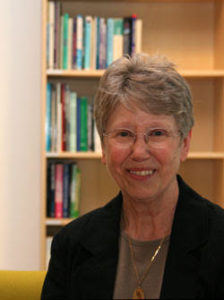
What single concept or skill do you feel is most important for your students to learn, and what is your approach to teaching it?
Although I emphasize three or four critical skills in the course of a semester, the most important for me is tackling issues of evidence. Most of science is contested in one way or another, and science writers must manage these claims. This does not mean that a science writer must build the expertise needed to adjudicate such claims herself; rather, it is important for writers to understand the ways in which scientific claims are made and defended within science, and it is important to develop strategies for vetting truth claims and then representing those claims in ways that allow audiences to see which ones have more scientific support than others. To accomplish the former, my students and I explore the training and reward systems of science with the help of scientists who share their experiences, as scientists. Students get a sense of the latter by talking with experienced science journalists and practicing writing strategies that reflect recent research on communicating multiple (and often lopsided) truth claims.
What specific skills-related experiences outside the classroom do you think are most important for students to have in their training?
Writing students must report and write in real-world settings. So, like most science-writing teachers, I send my students out to interview scientists throughout the course. I also try to make arrangements with a science-journalism outlet—Inside Science and Discovery News have been great partners in past semesters—to work with willing students in order to get their articles published. In the course of these writing and reporting episodes, students learn quite a lot about scientists, about editors, and about the business of marketing stories.
What have you learned in your own career that you most hope to convey to your students?
I am as sensitive to critique as the next writer, but I have learned the value of feedback and revision, and I try to help my students build the capacity to seek reviews of their work and to regard the first draft of a story as only a beginning. My primary strategy for accomplishing this is peer feedback: Each story generated by a student is read by two or three classmates, and entire class periods are then devoted to small-group discussions of each other’s drafts. The strategy not only helps these young writers begin to value feedback (and, importantly, learn that criticism can be helpful) but also generates better final stories.
What textbooks and other reading do you use in your teaching?
I find journalism textbooks to be way too pedantic. So I rarely have a main text for my science writing class. I do use texts such as The Best American Science and Nature Writing to give students some really good stories to read and analyze (we start each class period with one of the students analyzing a story she/he has selected). Given my interest in issues of evidence (see above), I have also used the Cohn and Cope book News & Numbers.
What resources do you wish were more readily available for students?
In a word, internships. They are out there in modest numbers, and most of my science-writing students land one or two over the course of their programs. But the kinds of paid internships that enable students to gain serious reporting/writing experience and to network with science writing professionals are few and far between.
What is a science story that you admire, and why?
Wow … this is a tough question. I tend to follow favorite writers, including Carl Zimmer, Charles C. Mann, Deborah Blum, Robert Kunzig, and Robin Marantz Henig (among many others). Their explanatory prowess just blows me away, so I will track them to any publication venue where they have landed. I also follow a few sites whose investigative work I hold dear, such as InsideClimate News and The New York Times, which continue to have the courage to tackle complex, sometimes murky science and environmental issues.


